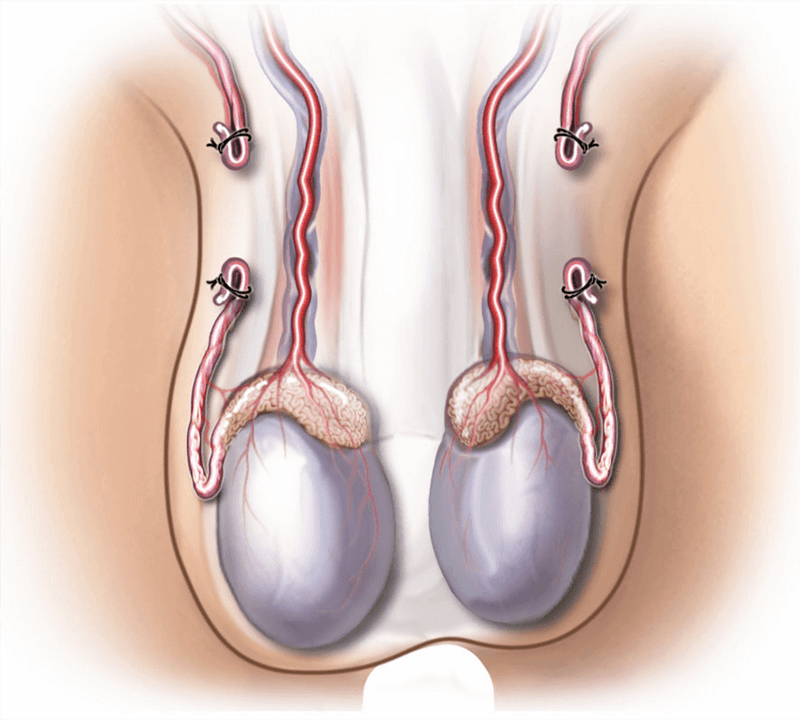What is reversing a vasectomy?
You had a vasectomy, which is meant to be a permanent method of male contraception. It involved cutting both the tubes (vas deferens) that carry sperm from your testicles. Reversing a vasectomy is a procedure to rejoin the tubes.
Reversing a vasectomy can fail, even if the tubes are rejoined.
What are the benefits of surgery?
The aim of rejoining the tubes is to allow sperm to mix with your semen, making you fertile again.

Are there any alternatives to surgery?
You may want to consider using donor sperm, either from someone you know or from a sperm bank.
Using a technique called artificial insemination, your doctor will inject the sperm into your partner’s womb or near the neck of her womb. The sperm then fertilises her egg in the normal way.
It is possible for your doctor to take sperm from one of your testicles using a needle (sperm aspiration). In the laboratory, a single sperm can be injected directly into one of your partner’s eggs.
What does the operation involve?
The operation is performed under a general anaesthetic and usually takes an hour to 90 minutes.
Your surgeon will usually make two cuts, about 3 centimetres long, on each side of your scrotum.
Your surgeon will examine each testicle before finding and freeing up the tubes, and removing any scar tissue. Your surgeon will use an operating microscope to stitch the ends of the tubes back together.
How can I prepare myself for the operation?
If you smoke, stopping smoking now may reduce your risk of developing complications and will improve your long-term health.
Try to maintain a healthy weight. You have a higher risk of developing complications if you are overweight.
Regular exercise should help to prepare you for the operation, help you to recover and improve your long-term health. Before you start exercising, ask the healthcare team or your GP for advice.
Speak to the healthcare team about any vaccinations you might need to reduce your risk of serious illness while you recover. When you come into hospital, practise hand washing and wear a face covering when asked.
What complications can happen?
General complications of any operation
- bleeding
- infection of the surgical site (wound) or in your scrotum
- allergic reaction to the equipment, materials or medication
- chest infection
Specific complications of this operation
- long-term pain in your testicles
- reduced sperm count over time
- failure to restore fertility
Consequences of this procedure
- pain
How soon will I recover?
You should be able to go home the same day or the day after.
Do not do strenuous exercise, like running and riding a bicycle, for 7 to 14 days.
You should be able to return to work after about a week. If your work involves strenuous exercise, you may need to stay off work for up to 3 weeks.
Regular exercise should help you to return to normal activities as soon as possible. Before you start exercising, ask the healthcare team or your GP for advice.
Your doctor will ask you to give a sample of your semen after 6 to 8 weeks. The sample will be tested to find out if there are any sperm. If there are no sperm, it is unlikely that the operation will be a success.


